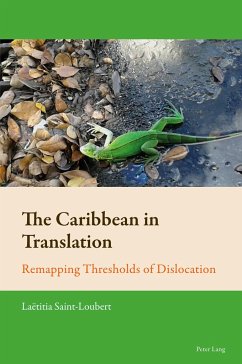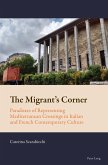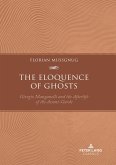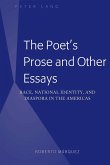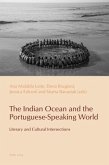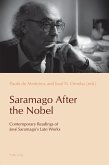«This fine, scholarly, richly detailed and persuasively argued book is an original and timely contribution to debates about why translation and multilingualism matter in a time when rising waters may deprive us all of island futures.» (Michael Cronin, Irish Journal of French Studies, No. 22, 2022)
This book investigates twentieth- and twenty-first-century Caribbean literatures in translation. Covering three of the largest linguistic areas of the region - the so-called English-, French- and Spanish-speaking Caribbean - the volume offers a comparative study of the region's literary output across a variety of genres: poems, novels, short stories and essays. Caribbean texts and their translations are analysed through the prism of the threshold, which serves a dual purpose. On a textual level, thresholds correspond to paratextual elements (e.g. prefaces, afterwords, foot/endnotes, glossaries, blurbs) that are used by various cultural agents to frame Caribbean literatures for global, regional and local audiences. On a broader level, thresholds, which both open into but also signal a limit or break, allow the author to examine and remap routes of (non)circulation for Caribbean literatures within regional, national and transnational frameworks. Analysing liminality alongside Glissantian notions that interrogate authorship, transparency, originality and hospitality in translation, the book tests the applicability of relational thinking to the imperatives of translation and literary circulation. Ultimately, the author asks whether traditional core-periphery models of global literary traffic can be challenged, inviting the reader to envisage alternative pathways of cultural exchange from Southern, archipelagic locations.
This book was the winner of the 2018 Peter Lang Young Scholars Competition in Comparative Literature.
This book investigates twentieth- and twenty-first-century Caribbean literatures in translation. Covering three of the largest linguistic areas of the region - the so-called English-, French- and Spanish-speaking Caribbean - the volume offers a comparative study of the region's literary output across a variety of genres: poems, novels, short stories and essays. Caribbean texts and their translations are analysed through the prism of the threshold, which serves a dual purpose. On a textual level, thresholds correspond to paratextual elements (e.g. prefaces, afterwords, foot/endnotes, glossaries, blurbs) that are used by various cultural agents to frame Caribbean literatures for global, regional and local audiences. On a broader level, thresholds, which both open into but also signal a limit or break, allow the author to examine and remap routes of (non)circulation for Caribbean literatures within regional, national and transnational frameworks. Analysing liminality alongside Glissantian notions that interrogate authorship, transparency, originality and hospitality in translation, the book tests the applicability of relational thinking to the imperatives of translation and literary circulation. Ultimately, the author asks whether traditional core-periphery models of global literary traffic can be challenged, inviting the reader to envisage alternative pathways of cultural exchange from Southern, archipelagic locations.
This book was the winner of the 2018 Peter Lang Young Scholars Competition in Comparative Literature.

